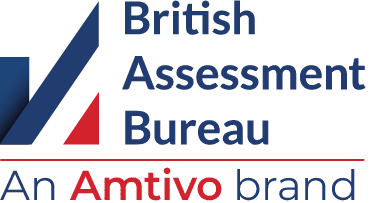Gaining ISO certification can greatly benefit your business in many ways, including increasing stakeholder and customer trust, better compliance with industry regulations, and reducing inefficiencies and wastage throughout operations.
Achieving ISO certification isn’t a one-and-done task you can tick off a checklist. Instead, it involves a number of steps that are taken over time. Part of becoming ISO certified involves undertaking an audit – you cannot achieve ISO certification without one.
Read on to find out precisely what audits are required, why they are so important, how they work and guidance on how to undergo one successfully.
What Is an ISO Audit?
EDITOR’S NOTE: Technically-speaking there is no such thing as an “ISO audit”. However, there are a variety of audits that are conducted in support of a management system that has been built to help a business operate in accordance with ISO standards such as ISO 9001. For the purpose of this article, we have used the term “ISO audit” as a catch-all for any audits that might be conducted in association with a management system that has been built to support an ISO standard.
An audit that is conducted by a certification body is a systematic, independent process that evaluates an organisation’s performance in line with the criteria set by an ISO standard defined by the International Organization for Standardization. An audit’s primary objectives are to assess how effective a company’s management system is in meeting a standard’s requirements and identify any areas needing improvement.
This ensures consistent quality, efficiency and continuous improvement across their operations – key tenets of all ISO standards. Because of their unique requirements, the audit process can differ slightly between ISO standards. For example, an ISO 9001 audit focuses on Quality Management Systems (QMS), while an ISO 27001 audit examines Information Security Management Systems (ISMS).
Each audit is tailored to assess the specific elements relevant to the standard in question.
Read our guide to understanding quality management systems.
Why Are ISO Audits So Important?
ISO audits are a crucial part of the ISO certification process.
They act as a formal assessment to ensure an organisation’s compliance with the requirements of a specific ISO standard.
They objectively review an organisation’s management systems, evaluating their effectiveness and alignment with the standard’s requirements. ISO audits also identify areas of potential improvement and non-compliance, highlighting what actions need to be taken to allow for continuous improvement and operational efficiency.
A successful audit is essential to achieving ISO certification. It showcases an organisation’s commitment to quality, efficiency or safety (depending on the standard), increasing credibility and trust with stakeholders.
Download our guide to the ISO certification process.
Types of Audits Explained
There are two types of audits in the ISO certification process – internal and external.
Internal audits (or ‘first-party audits’) are performed by an organisation on its own management systems. These self-assessments allow an organisation to monitor its own compliance and effectiveness, identify areas for improvement and prepare for external audits.
Explore our ISO 9001 internal auditor training course.
External audits are conducted by independent third parties, such as certification bodies (like the British Assessment Bureau). External auditors assess whether the organisation’s systems meet the required ISO standards. If the company fulfils the standard’s criteria, the certification body will then certify the organisation to that specific ISO standard.
Explore our CQI and IRCA ISO 9001 lead auditor training course.
Both types of audits are essential for achieving and maintaining ISO certification.
What Standards Do These Audits Apply To?
ISO audits apply to various standards, each addressing different aspects of performance. Some examples of these include:
- ISO 9001 – This standard focuses on Quality Management Systems (QMS), providing a framework for companies to ensure consistent quality in their products or services.
- ISO 14001 – An Environmental Management System (EMS) standard that helps organisations minimise their environmental impact and comply with relevant environmental regulations.
- ISO 45001—This Occupational Health and Safety (OH&S) standard aims to reduce workplace injuries, illnesses and accidents by ensuring that all safety regulations are adhered to.
- ISO 27001 – An Information Security Management System (ISMS) standard that helps organisations manage and protect data.
There are also many other ISO management system audits for specific sectors or activities, including food safety, medical devices, energy systems, IT service management and social responsibility. Each is focused on enhancing performance and reliability in their respective areas.
What’s Involved in an Internal Audit?
In an internal audit, an organisation evaluates its own adherence to an ISO standard’s requirements.
The role of an internal auditor involves reviewing processes, documentation and performance data relevant to the standard in question, identifying areas of non-compliance and making recommendations on how to improve.
Internal auditors can be employees of the organisation, but they must be impartial and not directly involved in the audited activities. They should also have a good understanding of the relevant ISO standards, audit principles and the organisation’s existing processes and systems.
Internal auditors assess various aspects of an organisation depending on the standard, such as quality management processes for ISO 9001 or environmental management systems for ISO 14001. They’ll often look at management commitment, resource management, product realisation and measurement analysis and improvement to ensure the organisation’s management systems are being effectively implemented and maintained.
The Role of Checklists
Checklists are valuable tools when preparing for and conducting ISO audits.
They can provide a structured framework to ensure all standard requirements are assessed, and nothing is overlooked. For example, having an ISO 9001 audit checklist could ensure an auditor reviews quality objectives, internal issues, corrective actions and customer satisfaction metrics, creating a comprehensive audit.
Checklists can be customised to your organisation’s specific needs, but basic templates can be found online for free through certification bodies as a starting point.
Download our ISO certification checklists to help understand what you need to achieve certification across a range of ISO standards.
Tips for Preparing for an ISO Audit
Preparation is key for a successful ISO certification audit.
It involves understanding the standard’s requirements, having a well-documented and implemented management system, and preparing your team for the audit process. When fully prepared, an organisation can increase its chances of achieving certification and reaping the benefits of an ISO standard.
Here are five tips to help you prepare for an ISO audit:
- Understand the standard – familiarise yourself with the specific requirements of the ISO standard you seek certification for. Make sure you understand the intent behind each requirement, not just the literal wording.
- Thorough documentation – keep clear, comprehensive documentation of your processes, policies and procedures as evidence of you following the standard’s requirements.
- Conduct internal audits – carry out internal audits to assess your readiness. This will identify any non-compliance or potential improvement areas that you can address before the certification audit.
- Engage your team – ensure all employees understand the standard and their role in meeting its requirements. Their awareness and involvement can significantly influence the outcome of your audit.
- Prepare audit evidence – gather concrete examples of how your organisation’s processes meet the standard’s requirements. This evidence can be invaluable during the audit to demonstrate your compliance.
How British Assessment Bureau Can Help
Undergoing an audit to achieve ISO certification can be a rigorous process. To succeed on the first try, you may want to use the services of a certification body to ensure you don’t miss anything in your initial assessments and have a trusted body handle your external audit.
British Assessment Bureau is a trusted, UKAS-accredited certification body that handles all ISO certifications. We can help your organisation with all steps of the ISO certification process, including audits. Our team of ISO professionals can help guide your team through the process with your unique needs leading everything.
Get started on your journey to certification – Get a quote today or contact our team to discuss your needs.


